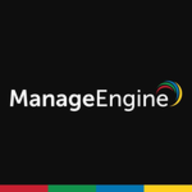

ManageEngine Log360 and Trellix Helix Connect both compete in the security solutions category. Trellix Helix Connect has the upper hand due to its advanced features and quick implementation, making it a better choice for larger enterprises.
Features: ManageEngine Log360 integrates log management and user behavior analytics efficiently, boasting modular architecture for customization, and offers consolidating capabilities for improved network security views. Trellix Helix Connect stands out with speed and integration, featuring AI capabilities, alert correlation, and threat intelligence integration, vital for strong incident response and extensive data correlation.
Room for Improvement: ManageEngine Log360 could improve cloud integration, enhance reporting features, and establish a better data retention system. More automation and a cloud migration path are areas for growth. For Trellix Helix Connect, enhancing third-party tool integration, refining user interface and dashboards, and reducing false positive alerts are suggested areas of improvement.
Ease of Deployment and Customer Service: ManageEngine Log360 primarily supports on-premises deployment alongside efficient customer service known for quick responses. Trellix Helix Connect provides both cloud and on-premises options, although its cloud-first approach favors organizations transitioning from on-premises environments. Customer service varies, with some users noting inconsistencies.
Pricing and ROI: ManageEngine Log360 is affordable, particularly for mid-sized to large enterprises, offering good functionality. Trellix Helix Connect, though seen as expensive, provides competitive pricing for its comprehensive capabilities, making it suitable for large-scale implementations. Both solutions indicate positive ROI within two years, with Trellix Helix Connect fitting comprehensive enterprise security strategies.
If unauthorized personnel attempt to add logs, the monitoring informs the administrator, enabling them to act promptly, leading to savings in both time and money for the company.
I have seen measurable return on investment through indicators such as mean time to detect and mean time to contain, reducing correlation and validation through automation.
We have seen a return on investment with Trellix Helix Connect, and we can share relevant metrics as we reduce the MTTD and MTTR and have KPIs indicating our ROI.
I would rate their technical support as nine out of ten.
The support provided by ManageEngine Log360 is fantastic.
The customer support for Trellix Helix Connect is well in Latin America because there are many people in the region, which enhances the experience.
We experienced some challenges due to the ongoing transformation and fusion of McAfee and FireEye, but we are committed to improving response times.
The partner support is good and I do not have problems.
We backed up the database and completed the recovery with the application, proving it is reliable for disaster recovery.
We support the largest companies in the world and can cater to large environments.
Trellix Helix Connect's scalability is excellent as the solution has a library to make integrations with other brands.
Trellix Helix Connect scales well as my organization grows, provided it is architected correctly from the beginning.
Trellix Helix Connect is very stable, and I have experienced almost no downtime or issues.
The availability is high, which is critical for our customers who rely on a single panel of glass to operate.
Without needing to purchase an add-on module, ManageEngine Log360 should include more in-depth reporting capabilities in the current module.
At minimum, PostgreSQL support should reach the MS SQL level of features and support that ManageEngine Log360 presents.
Log360 currently cannot gather information from Intune logs or cloud-integrated systems.
We have just released the solutions to the market recently, making it a revolution in the cybersecurity sector.
The usability of hyperautomation is something to improve in the solution because it is expensive regarding the needed improvements.
Trellix Helix Connect could improve in design and perhaps strengthen native cloud and SaaS telemetry integration.
The price is suitable from a perspective of different pricing options.
It is not the cheapest, but also not the most expensive solution.
All mandatory regulatory compliance reports are available with the integrated system, and companies can easily customize reports without coding to meet their policy or reporting requirements.
ManageEngine Log360 could integrate with all systems, making it possible to integrate everything to the central location, which made it a useful and necessary tool.
ManageEngine Log360 was selected because AlienVault was moving strictly away from on-premises to the cloud, and an on-premises solution was required.
Trellix Helix Connect has made a significant impact on my organization because I can reduce mean time to contain, improve alert quality, standardize incident handling with playbook enforcement, and provide stronger executive reporting on Helix incident metrics improving MTDD and MTTC tracking as well as internal risk posture reporting.
Trellix Helix, as an AI XDR platform, helps our organization by offering an extensive number of connectors for integration, enabling us to consolidate all information in a single dashboard.
| Product | Market Share (%) |
|---|---|
| Trellix Helix Connect | 1.1% |
| ManageEngine Log360 | 1.6% |
| Other | 97.3% |


| Company Size | Count |
|---|---|
| Small Business | 14 |
| Midsize Enterprise | 2 |
| Large Enterprise | 2 |
| Company Size | Count |
|---|---|
| Small Business | 6 |
| Midsize Enterprise | 1 |
| Large Enterprise | 7 |
Log360 is your one-stop solution for all log management and network security challenges. It is an integrated solution that combines EventLog Analyzer and ADAudit Plus into a single console to help you manage your Active Directory auditing and network security easily.
Trellix Helix Connect is known for its seamless API integration, automation capabilities, and efficient data correlation. It offers robust solutions in email threat prevention and malware detection, catering to cybersecurity needs with a user-friendly query language and extensive connector support.
Trellix Helix Connect integrates incident response, centralized SIEM tasks, and data correlation using native support for FireEye products. It rapidly handles alerts, enhances ticket management, and prevents network attacks. Its XDR platform supports a wide range of environments, providing DDI and IOC feeds for comprehensive data, email, and endpoint security. Users appreciate the deployment and API integration, but improvements in graphical interface and pricing could increase satisfaction. Additional infrastructure enhancements and optimized support can address current challenges resulting from recent mergers.
What are the key features of Trellix Helix Connect?Enterprises utilize Trellix Helix Connect for its ability to manage managed detection and response services, logging, and ransomware/ phishing mitigation. It operates efficiently in restrictive environments, enabling cybersecurity functions in industries requiring robust data, email, and endpoint security strategies.
We monitor all Security Information and Event Management (SIEM) reviews to prevent fraudulent reviews and keep review quality high. We do not post reviews by company employees or direct competitors. We validate each review for authenticity via cross-reference with LinkedIn, and personal follow-up with the reviewer when necessary.